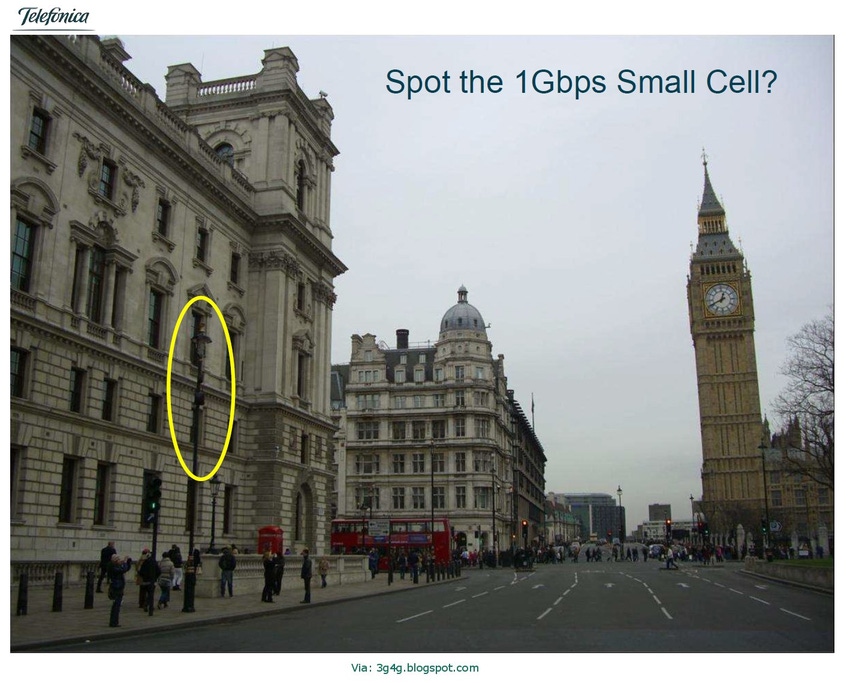Mobile operator O2 UK has revealed that it expects to run out of spectrum on its macro cell layer around 2014. Speaking at a round table briefing hosted by the Small Cells Forum, Telefonica UK’s chief radio engineer Robert Joyce said that, “As we see it, with the increasing demand from tablets and smartphones the macro cell will not be able to cope. We can take the macro cell grid to eight times its current capacity and then we’ll run out of spectrum.”
June 26, 2012

Mobile operator O2 UK has revealed that it expects to run out of spectrum on its macro cell layer around 2014. Speaking at a round table briefing hosted by the Small Cells Forum, Telefonica UK’s chief radio engineer Robert Joyce said that, “As we see it, with the increasing demand from tablets and smartphones the macro cell will not be able to cope. We can take the macro cell grid to eight times its current capacity and then we’ll run out of spectrum.”
Joyce said that this would occur even taking into account the spectrum acquisitions it hopes to gain from the digital dividend auction in 2013.
To deal with this spectrum crunch Joyce said that, along with spectrum acquisition, refarming 2G to 3G, and moving to LTE, small cells would be the answer. “At this point we will have to break the grid. We will to talk about small cells – not just femtocells but wall-mounted, telegraph pole small cells.”
Joyce went on to say that any issues operators were likely to face around small cell deployment were not technological but practical. “The key to small cells is not so much the technology, as we’ve found in London, it’s more what structures are available and what deals you can do getting planning permission. The councils want free wifi, but push you to their planners when you try and put free wifi on the lamp posts.”
Joyce revealed that to support the demand for data during the Olympics O2 has, in partnership with Ruckus Wireless, launched a number of open small cell powered wifi networks in London. Joyce said in testing last week on Exhibition Road, he was able to achieve a download speed of 83Mbps, albeit on an unloaded cell.
Detailing the work that went into the backhaul network Joyce said, “We’ve had to use various transmission techniques in London to get the network deployed in time for the Olympics. We’ve got a mix of 28GHz point-to-point from Cambridge Broadband Networks. We’ve got 5Gig unlicensed links down to the street canyons and we’ve actually got a full mesh throughout all the lampposts in central London along with BT fibre – a real attack of transmission techniques.”
Joyce said that O2 were also looking at supplying xDSL to rural areas via telegraph poles and looked at powering small cells via solar power for areas where using conventional power techniques were restrictive.
The Small Cells Global Congress is taking place on 30-31 October 2012, in the Hotel Palace, Berlin, Germany. Click here to register your interest.
About the Author(s)
You May Also Like








.png?width=300&auto=webp&quality=80&disable=upscale)


_1.jpg?width=300&auto=webp&quality=80&disable=upscale)


.png?width=800&auto=webp&quality=80&disable=upscale)